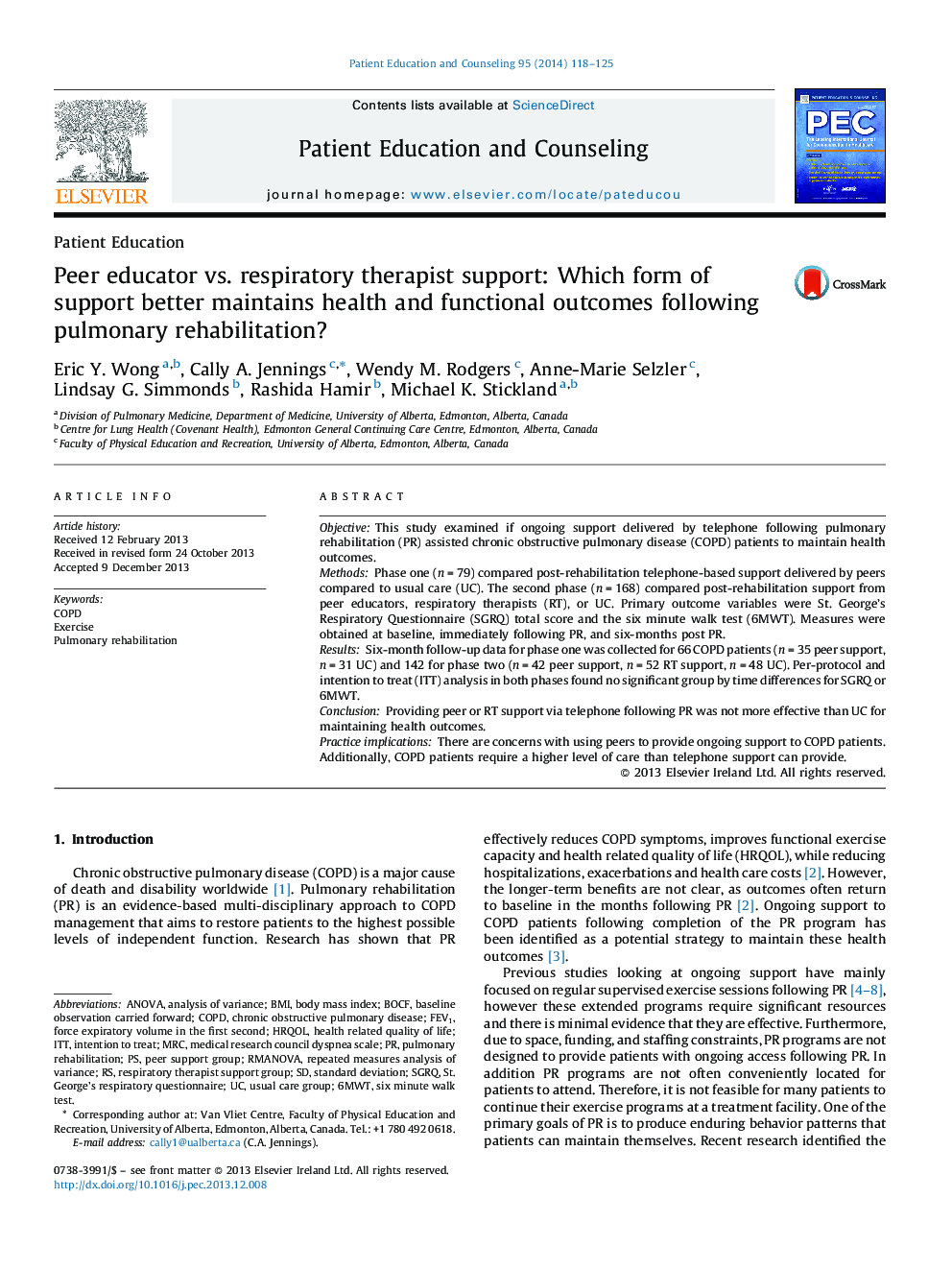| Article ID | Journal | Published Year | Pages | File Type |
|---|---|---|---|---|
| 6152940 | Patient Education and Counseling | 2014 | 8 Pages |
ObjectiveThis study examined if ongoing support delivered by telephone following pulmonary rehabilitation (PR) assisted chronic obstructive pulmonary disease (COPD) patients to maintain health outcomes.MethodsPhase one (n = 79) compared post-rehabilitation telephone-based support delivered by peers compared to usual care (UC). The second phase (n = 168) compared post-rehabilitation support from peer educators, respiratory therapists (RT), or UC. Primary outcome variables were St. George's Respiratory Questionnaire (SGRQ) total score and the six minute walk test (6MWT). Measures were obtained at baseline, immediately following PR, and six-months post PR.ResultsSix-month follow-up data for phase one was collected for 66 COPD patients (n = 35 peer support, n = 31 UC) and 142 for phase two (n = 42 peer support, n = 52 RT support, n = 48 UC). Per-protocol and intention to treat (ITT) analysis in both phases found no significant group by time differences for SGRQ or 6MWT.ConclusionProviding peer or RT support via telephone following PR was not more effective than UC for maintaining health outcomes.Practice implicationsThere are concerns with using peers to provide ongoing support to COPD patients. Additionally, COPD patients require a higher level of care than telephone support can provide.
